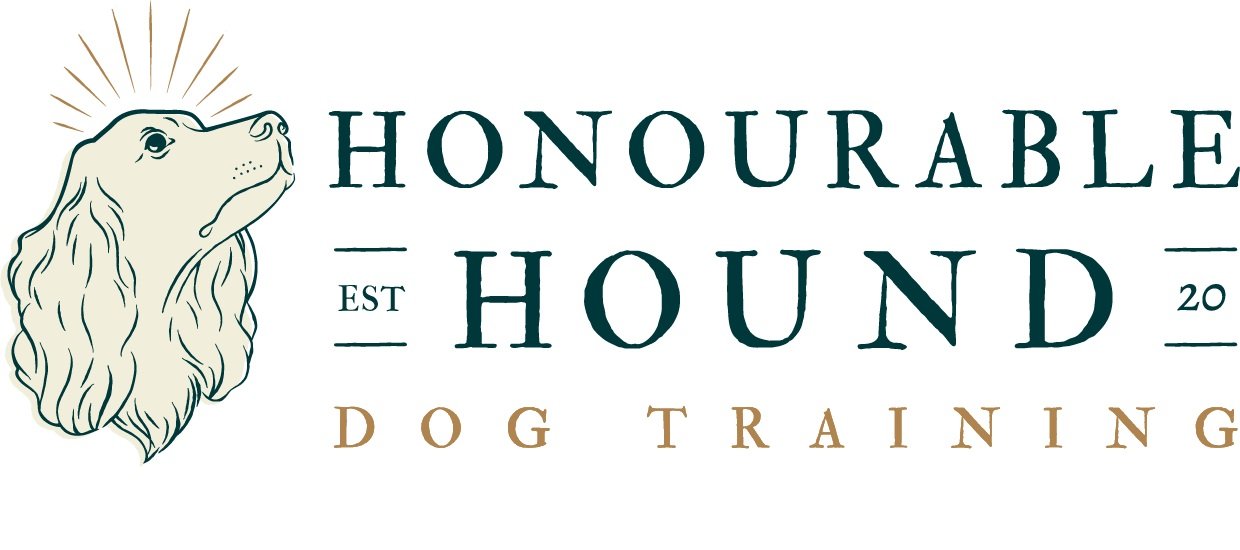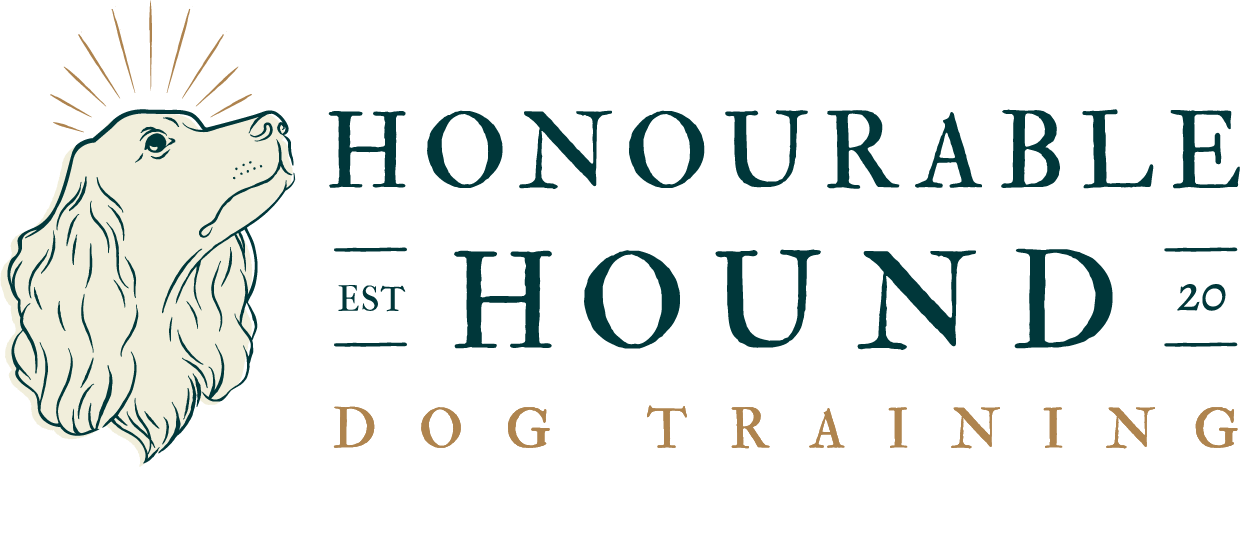
Change is Possible
Practice the R+ skills you’ve learned in a supportive environment.
Welcome to Reactive Dog Club
-
Reactive Dog Club is where pet parents can meet up and practice positive reinforcement training with like minded individuals while under the guidance of a professional dog trainer. Every participant gets 30 minutes of 1 on 1 time with a trainer and individualized advice. Think of it as a mini private lesson, but in a group class environment.
The goal of this service is to keep your dog under threshold & gradually decrease distance from triggers. Our trainers work with you on whatever your goal is- whether it’s helping your excitable buddy chill out around others or your fearful friend learn that the world isn’t such a scary place.
We primarily cater to leash reactive dogs but you’re welcome by even if you’re just here to practice your basic leash manners.
-
Most reactive dog meet ups look like a bunch of dog owners standing around in a field practicing basic obedience drills like “look at me” and “heel” etc. Basic obedience drills are, of course an important piece of your reactivity training plan, but they’re only one (fairly small) piece of the whole picture.
A reactivity training plan that relies heavily or exclusively on basic obedience drills is essentially teaching you to get really good at micromanaging your dog’s behaviour when they’re around triggers. The trouble with this approach is that the micromanaging never really stops because you were never taught to work on the reason why your dog is displaying reactive behaviour in the first place.
The truth of the matter is that you cannot basic obedience your way into real, lasting behaviour change. Getting to the heart of the problem and working on that is exactly what we do here at RDC. -
“Reactive” is a label we apply to dogs who struggle with big feelings and/or reactions around their triggers. Triggers are usually dogs, people, and moving objects (think cars, skateboarders, etc).
Reactions often include dogs who fixate on their triggers, pull towards them, bark or otherwise vocalize at, lunge at, and/or struggle to focus on their owners when around triggers. Many reactive dogs often struggle to fully enjoy and relax on their walk, too.
Often reactive dogs are either fearful or territorial around their triggers, or overly excited about saying hello. Regardless of the reason - all dogs are welcome here at Reactive Dog Club. -
Level 1 meet ups take place in wide open, quiet spaces to ensure you are set up for success. When you arrive at the meet up location, keep your dog in the car until a trainer lets you know it’s your turn for a practice run. There will only be 1 other dog in the environment for you to keep track of during your practice run, which lasts 30 minutes.
During your practice run, a trainer will be with you and guide you on what to do and how to improve your training. Often, (but not always) this can look like the trainer handling and training your dog for you during the first half of the practice run, and the trainer coaching you while you handle and train your dog during the second half. During your sessions, we wlll cover the following concepts:
Engage Disengage
Matwork
U turns
Body positioning (middle or side switching)
Long line handling
Decompression games (treat scatters, etc)
Up/down game
123 game
Parallel walks (with or without LATTE pattern)
Treat/retreat
-
Level 2 meet ups are for returning RDC clients only. You must have completed all 10 level 1 RDC concepts in order to join level 2. For best results, confirm if you are ready for level 2 with your RDC trainer before booking.
These meet ups are designed to appropriately challenge you and your dog. Unlike level 1, you will not have a coach by your side to guide you at all times and there may be multiple dogs in the environment for you to keep track of.
When you arrive at the meet up location, you & your dog are free to exit your car as soon as your arrive and begin training. It will be up to you to judge when your dog needs a decompression break.
During your practice run trainers will be available to you to answer questions and help facilitate pass bys, parallel walks, quick greetings, and more. Trainers are also available to help troubleshoot issues with emergency leash maneuvers such as u-turns, heel, middle, behind me, and more.
Every level 2 meet up comes with a daily agenda of activities (a mixture of the concepts taught in level 1) for all participants to do
RDC Policies & FAQ
-
The are 3 requirements to join Reactive Dog Club:
You’ve already had at least 2 lessons with a positive reinforcement dog trainer regarding your dogs reactive behaviour .
You are already familiar with the concept of thresholds & stressed dog body language
You are already familiar with the concept of management
You are already familiar with the concept of mark/reward or click/treat
If you don’t meet all of these qualifications yet, you will need Private Lessons first before joining the club.
Simply put - Private Lessons are where you learn what to do and Reactive Dog Club is where you practice what you’ve learned in a safe, controlled environment.
-
Meet ups occur on Thursday evenings all year round. During the spring and summer months, classes are held in the south west corner of Central Park, Burnaby (near metrotown). During fall and winter we meet at an indoor location in East Van.
You will need a vehicle to both get to the space and give your dog a place to relax in while you are waiting for your turn to work 1 on 1 with your instructor.
Please note that due to the fact that we practice in locations that minimize the chance of the general public (and their random off leash dogs) showing up, some locations may be a little tricky to find. You will have our contact info if you need to connect with us.
-
Students with different training backgrounds will always be welcome at RDC, however corrective methods are not used at meet ups and are not recommended by Honourable Hound trainers. You should be comfortable with the foundation training skills listed in the requirements section above and interested in learning how to move away from a corrective mindset and towards a positive training skillset.
Corrective training often includes:
Waiting for your dog to make a mistake
Correcting them when they make mistakes
Discouraging unwanted behaviour without necessarily teaching an appropriate alternative behaviour
Putting the dog in situations they can’t handle so that you can correct them and/or so that they get overwhelmed and shut down.
The use of tools such as slip leads, prong & choke collars, e-collars/shock collars
Positive training often includes:
Setting your dog up for success
Avoiding overwhelming your dog (keeping them under threshold)
Teaching your dog what you’d like them to do instead
Reinforcing them for good choices
Keeping them feeling as safe as possible
The use of tools such as 6 ft. leashes, harnesses, flat collars, long leads, clickers & treats
We are no strangers to helping people move away from corrective based training- it’s one of our favorite things to do! Nothing makes us happier than helping people move away from stressful and guilt-inducing training. Positive training works for everyone and we would love to show you how it can work for you and your dog.
-
For People Who Are New to Training:
We highly, highly recommend that you have ongoing private lessons with a trainer set up when you first start your training journey.
There is only so much that youtube tutorials, reddit threads, and googling sessions can teach you without the deeper & more comprehensive understanding that comes with in depth, one on one coaching. Your private trainer should be covering concepts like management, body language, pattern games, basic training theory, and more.
For best results, we recommend private sessions 2-4 times a month when you first start training.
For People Who Are Not New to Training:
Once you’ve learned the ropes of training, your learning curve will slow down as will your need for one on one coaching. At this stage you should feel pretty comfortable with foundation concepts and should be working on more advanced things like emergency leash maneuvers, safety cues, performance in busy environments, and finding & troubleshooting gaps in your individualized training plan.
At this point, we recommend private sessions 1-2 times a month.
-
Meet Ups must be canceled or rescheduled with 48 hrs notice or the session is forfeited.
Unfortunately we're not able to reschedule the session with short notice, as it is a drop-in group class that's dependent on each participant having a partner.
You can reschedule a Meet Up a maximum of 2 times before the session is forfeited.
No-shows forfeit their session.
You’re “All In” & So Are We
Let’s get started - we look forward to seeing you and your dog at our next Meet-Up!
Questions?
You’ve got questions & we’ve got answers

